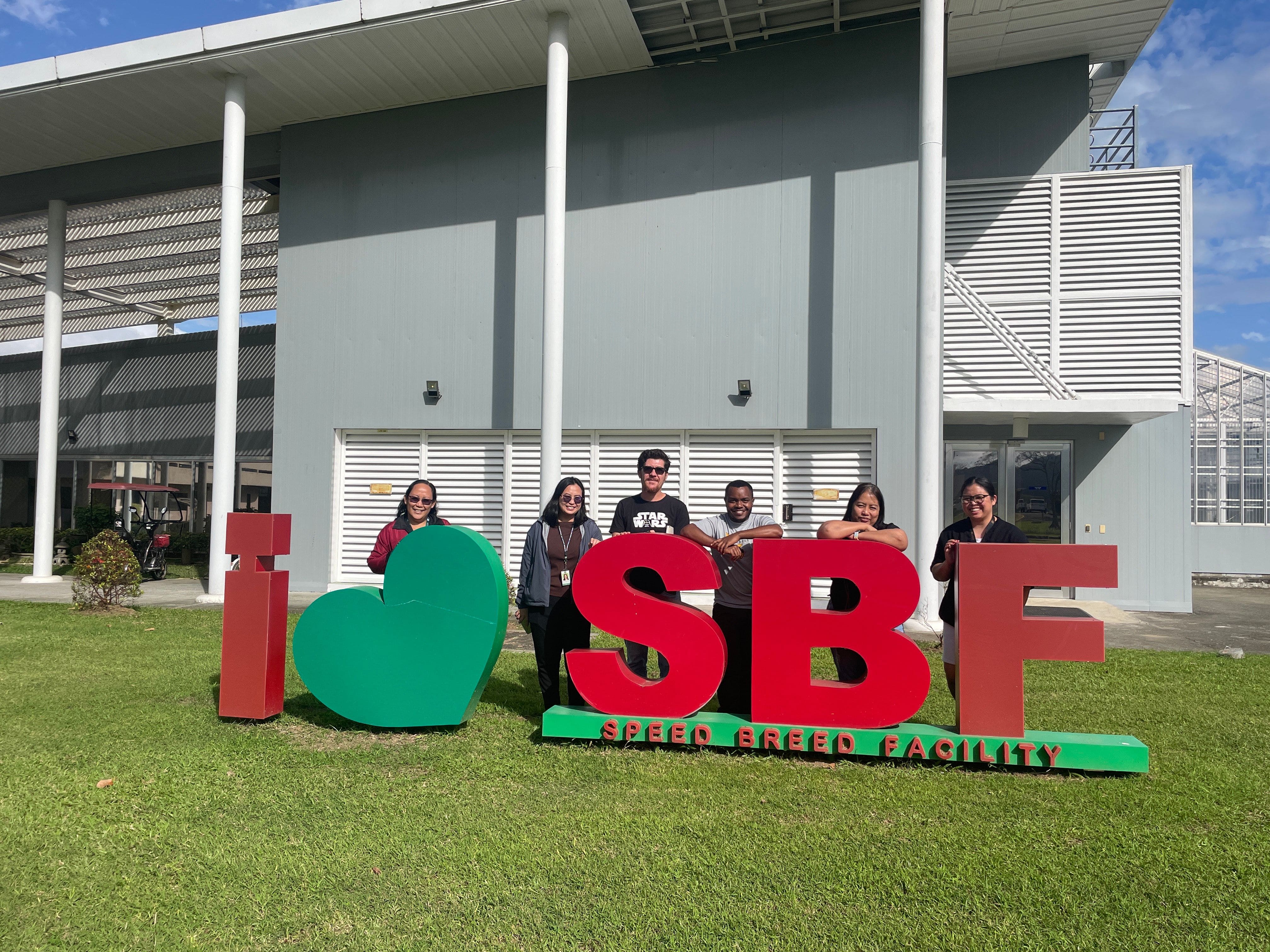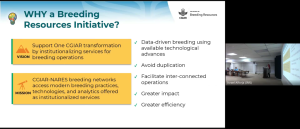Contributed by Stephanie Manrilla
Recognizing the need to increase adoption of the Enterprise Breeding System (EBS) in South Asia, IRRI EBS Data Management Team conducted training among scientists, researchers, and technicians at the IRRI South Asia Hub, Hyderabad, India on 22-26 May 2023.
A total of 28 participants from IRRI’s Bangladesh, Odisha, and Varanasi offices, attended the on-site training which aimed to increase uptake of EBS, promote good data management practices, and enable efficient data-driven breeding decisions. Two of the participants were from the Centro Internacional de Mejoramiento de Maíz y Trigo (CIMMYT) Hyderabad office, who support Breeding Management System (BMS) and EBS users in the South Asia region.
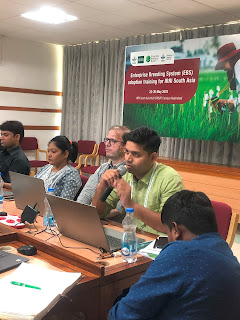
IRRI EBS Data Management Specialists, Ma. Concepcion Lotho and Michael Reyes, served as resource speakers during the week-long training.
Ms. Lotho and Mr. Reyes provided in-depth lectures and demonstrations of applications under Core Breeding (all tools), Service Management (Shipment), and Breeding Analytics (Phenotypic Data Manager and the Analysis Request Manager) domains to equip participants with essential EBS know-how—from creating experiments to analyzing collected data.
The training followed a workflow-based approach and covered relevant tools for the following supported experiment types: breeding trials, observations, generation nurseries, and cross nurseries. Important use-case scenarios were also highlighted to relate EBS processes to actual field practices, including germplasm selection, seed sources management, and shipment; experiment planning and execution (both in-house and in collaboration with NARES); data collection, cleaning, and analysis; and finally harvesting and advancement, among others.
As nearly half of the participants were specifically attending to improve their EBS data collection proficiency, the IRRI EBS team focused on using the Field Book application, which enables users to collect, quality check, and store data. At the end of each topic, the participants actively posed inquiries and hands-on activities were designed to assess their understanding of concepts and processes. Participants provided positive feedback on the training noting its appropriateness, helpfulness, and timeliness of the intervention.
Moving forward, the EBS adoption activities in the South Asia region will be evaluated through consistent use of the system.
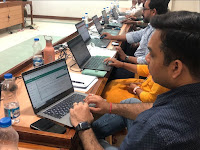
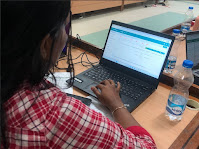
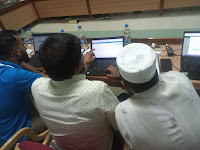
The EBS aims to transform crop breeding by offering a single data management system that digitalizes the breeding process. More adoption activities, such as training and information sessions, can be expected in the future as the EBS becomes the sole breeding data management system across CGIAR Research Centers.
